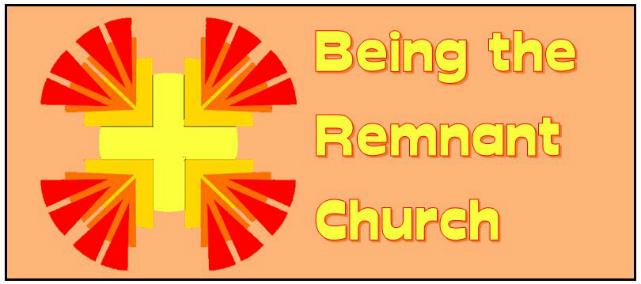[The third in a series]
The scenario sounds way too familiar. The Lord had chosen a people for Himself, rescued them from slavery, delivered them from destruction, and set them apart in the land into which He had placed them. He called them to live among unbelieving people in such ways that they stood out among the inhabitants of the land and, because of how they lived as God’s people, attracted them to their community of faith. But the people failed to live as God had called them to live. Instead they adopted the ways of the unbelieving people of the land. They embraced their lifestyle. They adopted their worldviews. They even worshiped their idols. Rather than standing out in ways that attracted unbelievers to the Lord, God’s people blended in and became part of the culture around them. Yes, way too familiar.
God dealt with the unfaithfulness of His people harshly. Just as He had warned them through His prophets, the Lord sent destruction to the land and removed most of His people to captivity in Babylon. But He did not treat them as they fully deserved. Instead, because of His great mercy and love, He preserved a small number of His people — a remnant — in the land. He did not preserve them because they were more faithful or less faithful than those taken away. Nor did He preserve them because they had greater or lesser skills than those banished from the land. Rather, He preserved them because He had a purpose for them and a promise to keep through them.
His purpose for the remnant was to do what the people as a whole had failed to do: take a stand in the land.
There are some striking similarities between the people of Israel in the land of Canaan and the church in America. Like them, we have been called to be light in the midst of great spiritual darkness. We have been set apart to live our lives in ways that radically contrast (and often conflict) with the culture of death and despair in which we reside. We are here to draw people to the life and salvation of the God who chose us as His people, rescued us from captivity, delivered us from death, and set us in this land. And like them, we have blended into our culture, adopting the priorities, embracing the values, and even submitting to the idols of the people around us. We have not stood apart, stood out, or stood up as God’s people. We have failed to take our stand in the land.
Now we are reaping what we have sown. The church that has confused the Gospel and the “American Dream,” consumed for pleasure the resources provided for our work, and embraced a culture that we were called to confront is struggling for its survival. Membership, financial resources, and influence are in decline, even steep decline, in many congregations. Now fewer people with fewer resources and less influence remain to do what the larger, more prosperous, and more favored church failed to do: take a stand in the land.
You have been given a privileged place in the remnant church. Perhaps you haven’t realized this because you would rather be part of a church that is large, wealthy, and highly regarded — or because you are consumed with longing for what has been lost. But you are among God’s chosen people. You have been delivered from the empty captivity of this world. You have been rescued from the death that consumes those around you. You have been set in this place and this time and under these circumstances not as punishment, but to join with the others whom God has preserved in His remnant Church to take a stand in the land.
[Next in the series: Sow for the Promised Future]
Questions to consider:
- Have I lived more in ways that stand out from the unbelieving people around me or in ways that fit in?
- How have I let the fewer numbers and reduced resources of the remnant church discourage me from be active in ministry?
- In what ways, in what places, and with which people has God positioned me to “take a stand in the land”?
- What resources do I need for me to “take a stand in the land”? Of those needed resources, what has the Lord failed to provide for me to take that stand?
